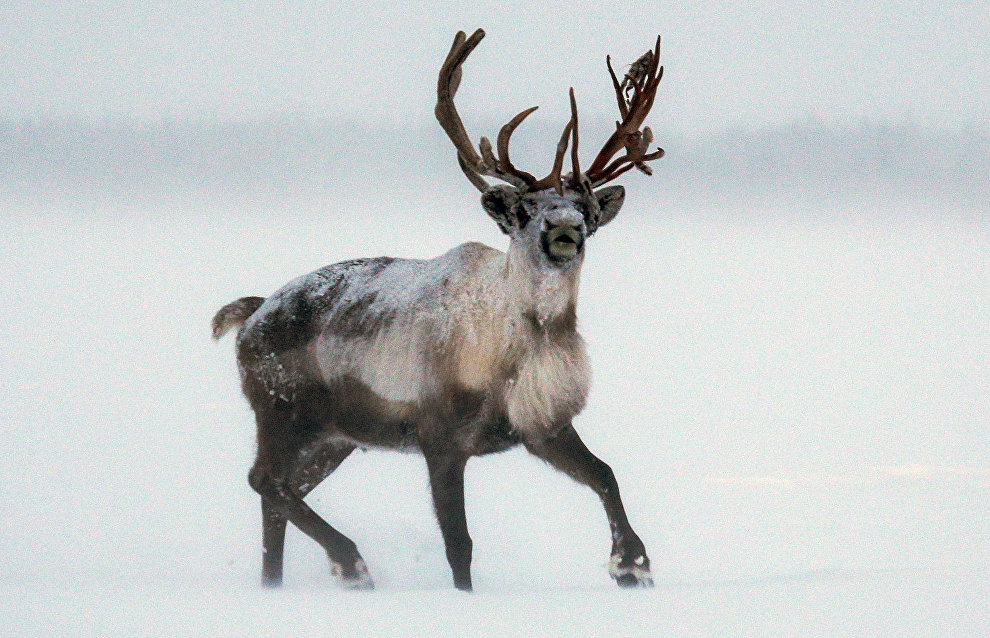Ministry of Natural Resources and Environment discusses how to preserve wild reindeer population
A meeting held to discuss how to preserve the wild reindeer population was chaired by Deputy Minister of Natural Resources and Environment Yelena Panova. The discussion involved representatives of the Federal Service for Supervision of Natural Resources (Rosprirodnadzor), Russian regions, specially protected natural territories, and organizations representing the interests of the small indigenous peoples of the North (SIPN).
According to the Director of the Department of State Policy and Regulation of the Hunting Sector Andrei Filatov, priorities for preservation of the species include restraints on wild reindeer hunting and stricter controls on withdrawal of the animals within the established quotas.
The high number of predators, primarily wolves, was identified as one of the main factors behind the decline in the reindeer population. The Republic of Sakha (Yakutia) and the Krasnoyarsk Territory have instituted wolf hunting prizes in an attempt to deal with the problem.
Rosprirodnadzor Deputy Head Amirkhan Amirkhanov said it was necessary to cut short reindeer hunting at wintering sites.
"February and March witness destructive hunting, the first victims being female reindeers that are starting to migrate towards their calving habitats. The new hunting rules drafted by the Ministry of Natural Resources and Environment in 2020 provide for cutting down the reindeer hunting timeframes," he said at the meeting, held via videoconference.
After hearing the reports of the representatives of the Krasnoyarsk Territory, the Republic of Sakha (Yakutia), and the small indigenous peoples of the North, Yelena Panova focused on the need to streamline the distribution of quotas for wild reindeer hunting with account taken of the needs of the SIPN. In this connection, she instructed the relevant ministry department either to improve the existing reindeer hunting quota distribution mechanism as soon as possible or to develop a new transparent and clear arrangement jointly with Rosprirodnadzor, the Krasnoyarsk Territory, the Republic of Sakha (Yakutia) and the SIPN.
Amirkhan Amirkhanov added that the small indigenous peoples of the North should play a determining role in distributing the region's hunting resources.
"The indigenous inhabitants should have the decisive say in determining the withdrawal rates, quotas and reindeer withdrawal sites, because so far we are both losing the reindeer population and destroying the traditional way of life of the indigenous inhabitants," he said.
The meeting also stressed the need for large-scale aerial surveys to specify the data on the current status of the species. The Government of the Krasnoyarsk Territory has planned a sweeping aerial survey for 2020 and 2021 at the Taymyr reindeer population's habitats. The Government of the Republic of Sakha (Yakutia) is raising funds to carry out aerial surveys of the Yana-Indigirka reindeer population.
The participants also discussed how to restrict the hunting of migrating wild reindeer in areas affected by the disaster at Thermal Power Station-3 in Norilsk. According to the Director of Central Siberia Nature Reserve Pavel Kochkarev, between 12 and 15% of reindeer from the Central Taymyr group migrate along the bank of the Pyasina River. Later the animals may head south and be killed near villages, something that would entail the risk of people eating oil-contaminated meat and offal. Ms Panova said that an interagency working group would deal with this problem separately.
